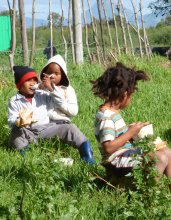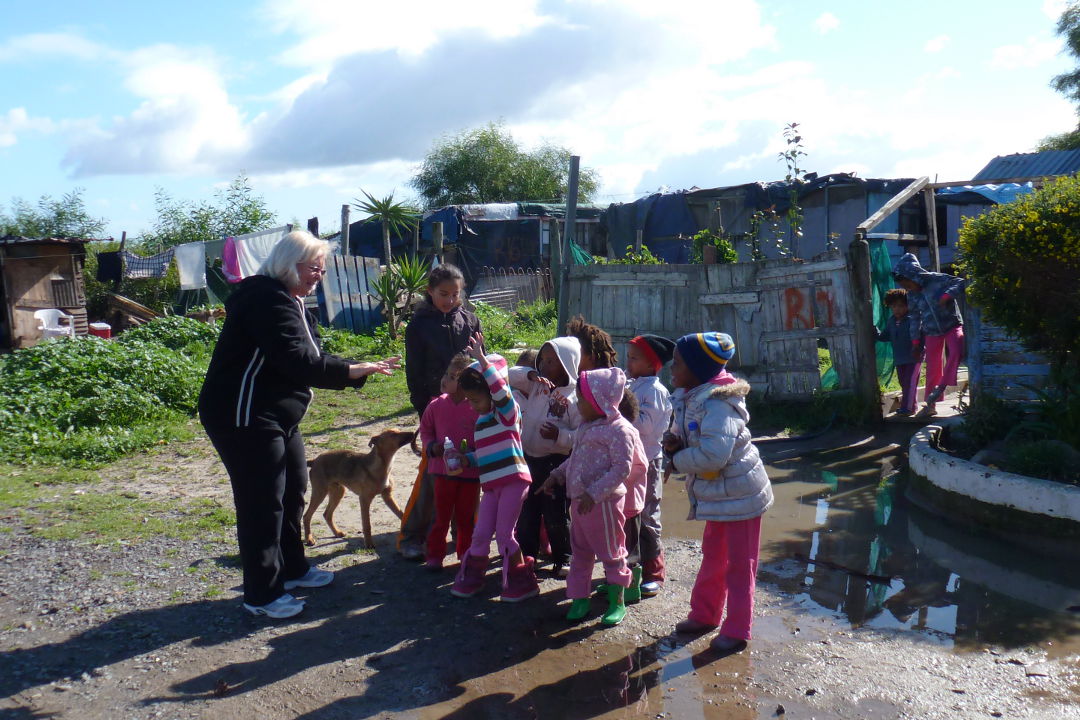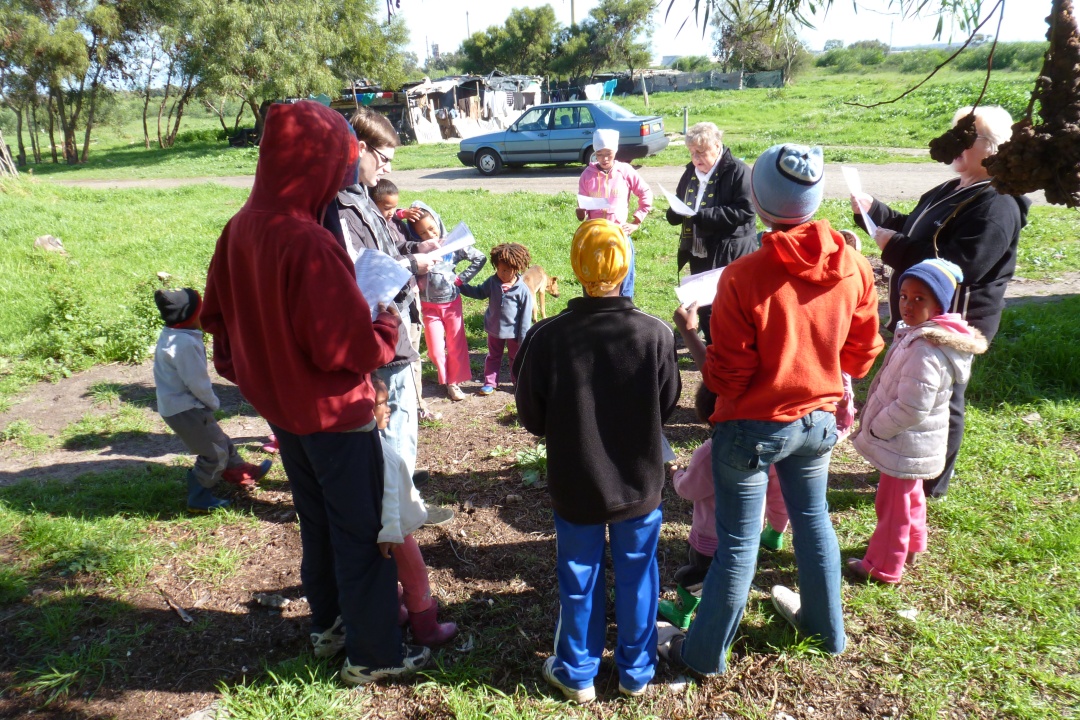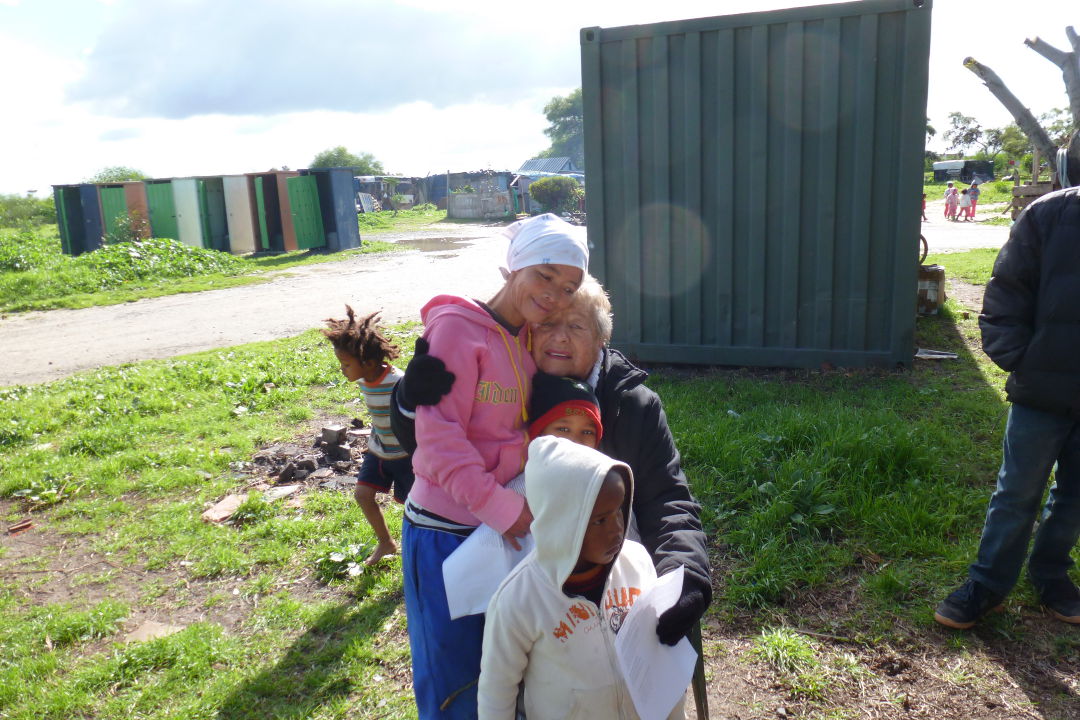
The Richwood informal settlement is no more. The hair suspending Damocle's sword has snapped and brought it down on a small impoverished community, cutting off the people from their land like a scythe through the tall spring grasses.
I realised when searching through my archives that I have never before written about Richwood here before, even though I had wanted to do so. While my friends and family know about it well, some readers here may not be aware of what I have been doing at Richwood. In this article I am therefore going to be giving a background to this story.
A couple of years ago, I was excited and bright-eyed one Sunday evening, as it was one of the first church services which I led1. After the service I was approached by a gentleman whom I did not really know. He introduced himself and explained that he would shortly be moving to a different city. The ease with which I led the service—and the fact that he knew I was a native Afrikaans speaker: a rarity in this offshoot of the Anglican church—made him think that I would be the ideal candidate—should I agree—to replace him in leading a small outreach ministry to small squatter camp not far from the church. I was hesitant: I had never done anything like that before and the distance it would put me out of my comfort zone set off warning lights throughout my mind. But I agreed to accompany their group the next time they went so that I could see it for myself and then decide.
The day arrived a week or two later and we left after the morning service. We drove north for two and a half kilometres and then suddenly turned left where one could be forgiven for not noticing there is a path. We drove down a short dirt road which was in a horrendous state and then we were in the informal settlement. I was amazed: the main road was visible from where we were (so the settlement must be visible from the road) and I had driven it many times, but apparently I had never noticed the small hamlet on the left-hand side. This realisation of their unconsideredness set the tone for many hard things about this community and its people which I would come to learn.
I was taken in by the community and the volunteers who helped them. I agreed to take over from the gentleman, Andrew Kruger, who was leaving. The other volunteers were all above 50: I was about half their ages. But they were committed and happy to serve this people: some had been involved with the community for years; others were still outside of their comfort zone. But they all believed that we, as Christians, are called to serve, and few groups needed it more than this one.
The community was comprised of coloured people and some Afrikaans speaking black people. Some were domestic workers, others seasonal labourers on farms, others builders... the kind of people who thanklessly drive a significant part of the economy. But they reap the leanest fruits for it. Many live hand-to-mouth... or hand-to-mouths, as a small wage needs to be stretched to feed a number of children in many of the homes. But the children were a delight to see
Across the road (east) lay Burgundy Estate: a high wall and a security post separating it from the outside world. From Richwood one could see the apartment buildings of Burgundy. These belonged to relatively affluent people: people with university degrees (and jobs to match) or successfully businesses. It was built a few years ago by a dodgy developer whose legal misadventures has led to large swathes of pre-allocated land to lie undeveloped until this day. But for those who were already living there, it was a slice of the young middle class dream: a apartment in a well-to-do environment, with good prospects as nearby developments promise a rise in property prices, and closer facilities such as schools. There was already a big strip mall with a large shop where groceries could be bought. It was here where the people of Richwood would rub shoulders with the people of Burgundy, although under close supervision of the security guards. Otherwise, the street separating the two communities must have seemed like a gulf; or a moat, surrounding and protecting the ivory castles of Burgundy.
North of the Richwood informal settlement lay "Richwood proper": another middle class community, less affluent than Burgundy. To the west lay a refinery, and to the south Bothasig, where our church is located. Left of the refinery loomed Table Mountain, watching like a mother over all her children.
Our outreach ministry began when one of the young pastors of the church, who lived in Burgundy, could no longer ignore the sight of the poverty—not only material, but spiritual as well—across the road. He set up the outreach ministry and soon amassed a small army of volunteers. Eventually, however, this pastor left the church for personal reasons, and the number of volunteers dwindled: it went from a weekly meeting manned by two teams down to a handful. I soon stepped into this ministry permanently: once every fortnight we would travel there, assemble whoever wanted to join, and conducted a small outdoor service. There was just over 100 people in the community, but typically between half a dozen and two dozen joined our service. We would sing—usually unaccompanied—in a typically coloured way. Thereafter we would pray and then I would deliver a short message. Afterwards there would be more praying and singing. At the end we handed out sandwiches; sometimes we had sweets for the children and in the winter we would often bring soup. On occasion we also had dog food for the dogs. There were many animals: dogs, cats, chickens and horses (to pull carts). All the animals gave Richwood very much a "farmyard feel". This, combined with the fact that there was no electricity, running water only at outside taps and the fact that food was cooked on open fires, made for a stark contrast with Burgundy Estate. After we handed out the sandwiches, the people usually departed, although sometimes people would hang around to chat or to ask for personal prayer.
Even though I was appointed the "teacher" for this community, God used those people to teach me many things, and to humble me. But that will be a subject for another article. We continued our fortnightly services for more than two years. Andrew had just begun in the Gospel of Mark when he left and I continued after he left. I tried to take them on a journey, alongside Jesus and the disciples, so that they would grasp the true gospel message. But while we were on that journey, thunderclouds were gathering in the distant political landscape.
- 1. If you are unfamiliar with the concept of "service leading", think of it as MC'ing; it is not the same as preaching.








Comments
Great piece, I enjoyed
Great piece, I enjoyed reading this, I look forward to hearing about the next part!
Chat soon bud
p,.s. the captcha's on this site are impossible to solve (takes about 10 tries for me)
Soon...
Hey David, thank you for your kind words! The next part will be up later in the week.
Sorry about the captchas. I haven't had those issues before (but then again, I don't need to go through the captchas). Are they simply illegible, or is it like a page load or sync error? Either way, I hope to redo the website in a few months, which will bring with it a new captcha system.